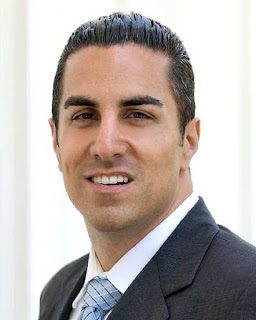Tuesday, February 12, 2013
Sacramento Bee: California Democrats consider giving lawmakers more say over initiatives
By Torey Van Oot
tvanoot@sacbee.com
The November election delivered California Democrats a coveted supermajority for governing the state.
Now the party's leader in the Senate wants to use that political capital to give the Legislature more say in the voter initiatives that make their way to the ballot...
...The idea that the state's 101-year-old direct democracy process needs updating isn't new. The rising cost of initiative campaigns, crowded ballots and legal battles over language have fueled calls for reform.
Shortages of political will and cash have sidelined previous efforts to change the system, through both the Legislature and the initiative process.
Democrats now have the ability, however, to put the changes on the ballot without GOP votes...
...Steinberg's package will likely include an "indirect initiative" proposal, which would let the Legislature amend or enact an initiative proposal with proponents' OK...
...California offered an indirect initiative route until 1966, when it was repealed. Few proponents took advantage of the system when it existed, in part because of timing issues created by the Legislature's then-biennial calendar.
Supporters say reviving the option would unclutter the ballot, provide public vetting of proposals and ensure that flaws or unintended consequences are worked out before a statewide vote...
...Polling by the Public Policy Institute of California consistently shows that while voters believe there are problems with the process, they'd rather make policy changes themselves than trust those decisions to the Legislature.
"The voters of California really believe that the initiative process is an important check and balance against the governor and Legislature, and they want to have a say in public policy, particularly the big decisions around the budget and long-term spending issues," PPIC President Mark Baldassare said. "But that doesn't mean they think the initiative process is in any way perfect."
The PPIC's surveys show widespread support for changes that would increase disclosure and transparency, but less enthusiasm for an indirect initiative option. Baldassare said any proposals put on the ballot would likely need broad backing to win over voters skeptical of a legislative power grab.
Even with Steinberg's political pull, reaching such a consensus could be difficult. The initiative process is used heavily by both business and labor interests. And high-powered consulting and law firms in Sacramento make large sums off the costly campaigns.
Assemblyman Mike Gatto, D-Los Angeles, experienced such opposition firsthand last session, when he introduced a package of constitutional amendments related to the initiative process. Some proposals, such as a requirement that measures that would cost the state money identify a funding source, started with bipartisan support. In the end, even two co-authors failed to vote aye.
"It was just tremendous pressure put on them by some of the people, 'Initiative Inc.', I guess you could call it," Gatto said. "Good government measures, they benefit the people as a whole, but there is no specific special interest that benefits from this."
You can read this entire story and more at the Sacramento Bee: HERE
Mike Gatto is the Chairman of the Appropriations Committee of the California State Assembly. He represents Burbank, Glendale, La Canada-Flintridge, La Crescenta, Montrose, and the Los Angeles neighborhoods of Los Feliz, Silver Lake, Atwater Village, and portions of the Hollywood Hills and East Hollywood. www.asm.ca.gov/gatto
Subscribe to:
Post Comments (Atom)


No comments:
Post a Comment